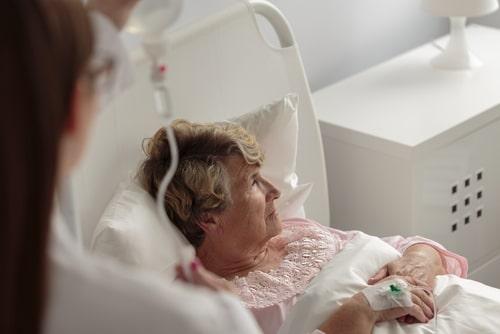Nursing homes are meant to be places of comfort and care for our elderly loved ones. Unfortunately, they can also be breeding grounds for dangerous infections. Understanding how these infections are spread is crucial in preventing their occurrence and protecting vulnerable residents.

The Role of Poor Hygiene
Poor hygiene practices among nursing home staff and residents can play a significant role in the transmission of infections. Failure to wash hands frequently, not properly disinfecting surfaces or medical equipment, and improper handling of bodily fluids can all contribute to the spread of harmful bacteria and viruses.
Nursing home staff members have a responsibility to ensure that proper hygiene protocols are followed at all times. This includes frequent handwashing using soap and water or alcohol-based sanitizers, wearing appropriate protective gear such as gloves or masks when necessary, and regularly cleaning common areas with disinfectants.
Inadequate Staffing Levels
In many cases, nursing homes may be understaffed due to various factors, including budget constraints or staffing shortages. Insufficient staffing levels can lead to increased workloads for nurses and other healthcare providers who are already very busy, resulting in rushed care routines and compromised infection control practices.
When there are not enough staff members available to provide adequate care for residents, it becomes much more challenging to maintain cleanliness standards within a facility. This increases the likelihood of infections spreading among residents.
Residents’ Weakened Immune Systems
Elderly individuals living in nursing homes often have weaker immune systems when compared to younger adults. Their advanced age combined with underlying health issues makes them more susceptible to infections and less able to fight off illnesses.
When a contagious infection enters a nursing home, it can quickly spread among the residents. This is especially true for respiratory viruses that can easily be transmitted through the air. It is crucial for nursing homes to implement strict infection control measures to protect their vulnerable residents from harmful pathogens.
Visitors and Community Exposure
Nursing home residents often receive visitors from outside the facility, including family members, friends, volunteers, and healthcare professionals. While these visits are important for maintaining residents’ emotional well-being, they also pose a risk of introducing dangerous infections.
Visitors who are not aware of their own infectious conditions may inadvertently expose nursing home residents to harmful bacteria or viruses. Similarly, staff members coming into contact with infected individuals outside of the facility can unknowingly introduce infections into the nursing home environment.
Preventing Infections in Nursing Homes
The prevention of dangerous infections in nursing homes requires a multi-faceted approach involving staff training on proper hygiene practices, adequate staffing levels, regular cleaning and disinfection protocols, and visitor screening protocols.
If you suspect that your loved one has developed an infection due to negligence or inadequate care at a nursing home facility in the Peoria area, the team at Nursing Home Injury Center can provide you with guidance on how to address these issues. We will help you address your loved one’s needs, and we will provide guidance on how to ensure that a nursing home will provide a safe and healthy environment for them in the future.
Contact Our Peoria County Nursing Home Infection Attorneys
If your family member has become ill or experienced health issues due to an infection in a nursing home, the experienced Peoria nursing home injury lawyers at Nursing Home Injury Center are here to help. We understand the ways these issues can affect you and your family, and we will work to ensure that your loved one’s best interests will be protected. Contact us today at 309-524-6900 for a free consultation.
Sources:
https://academic.oup.com/cid/article/36/7/870/318878
https://www.cdc.gov/longtermcare/staff/report-publications.html



